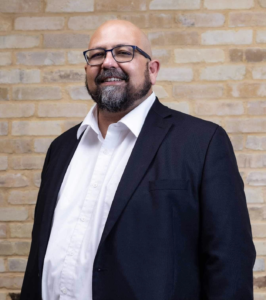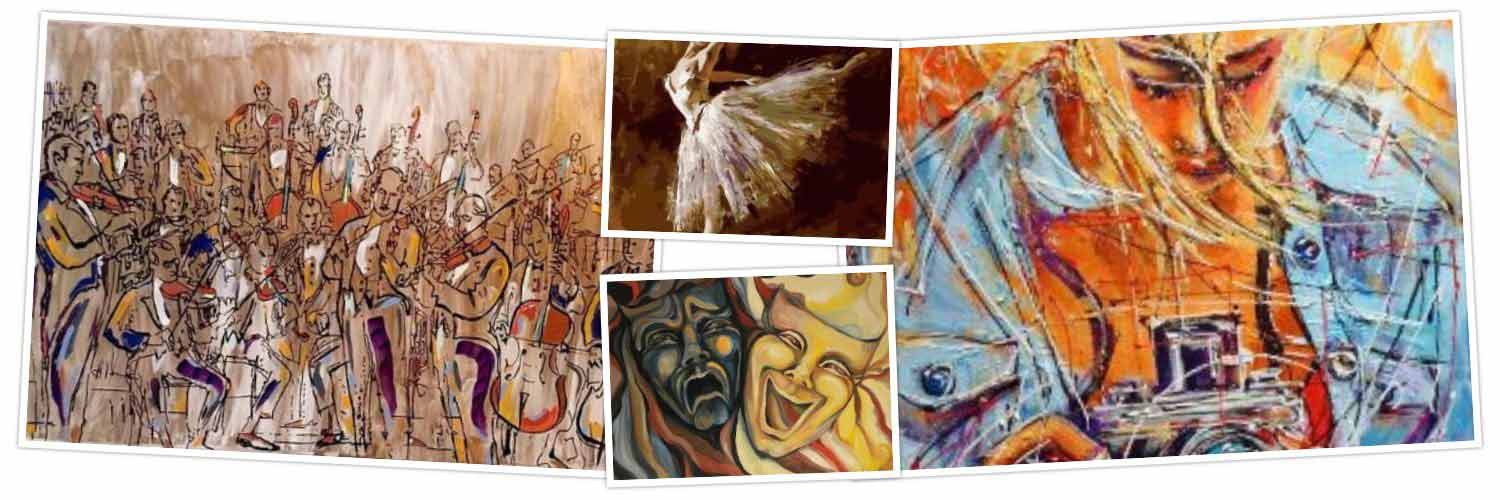Eddie Vega The Taco Poet Laureate
By STEVEN G. KELLMAN
In this town, tacos are a bargain, which is why Eddie Vega proclaims himself “The Taco Poet.” He celebrates poetry as a popular, accessible art. Inaugurated last April as San Antonio’s seventh poet laureate, he embraces the opportunity his new position provides him to be out and about spreading the gospel of his literary art. When I spoke with him by phone, he was a forceful advocate for using poetry to connect to large audiences.
The venerable post of British poet laureate goes back many centuries, but San Antonio, which was the first city in Texas to create the position of poet laureate, did not appoint its first titleholder, Carmen Tafolla, until 2012. She was succeeded by Laurie Ann Guerrero, Jenny Browne, Octavio Quintanilla, Andrea “Vocab” Sanderson, and Nephtalí De León.

After serving only four months of his three-year term, De León was abruptly ousted as poet laureate. The city’s Department of Arts and Culture claimed that a Spanish racial slur in a poem he posted to Facebook violated its code of ethics. De León in turn has sued the city for breach of contract, defamation, and violation of his First Amendment rights. The dispute created a vacancy, filled by the appointment of Vega as poet laureate. Vega refuses to be drawn into any discussion of his predecessor, and he denies that his official position constrains his artistic freedom. “I have the freedom to be a poet on behalf of our city,” he declares.
The position pays only $3,500 a year, and Vega holds a day job, as director of mission at Holy Cross of San Antonio. He performs campus ministry functions and teaches classes for the 6th, 7th, and 12th grades. He traces his interest in poetry to his own childhood. “My first poems were for my mom – for Mother’s Day and her birthday,” he recalls. “I was inspired by her.” To this day, Vega’s parents are supportive of his poetry. “My father makes sure to post every accomplishment in the group chat he has with his brothers and sisters.”
Asked which poets have influenced him most, Vega does not name any illustrious figures from the past. Instead, they are all contemporaries he has known personally: Jesse Cardona, Carmen Tafolla, Trinidad Sanchez, Juan Felipe Herrera, Richard Blanco, Edward Vidaurre, Naomi Shihab Nye, Anthony Flores, Gil Scott Heron, Amado Nervo. More than books, he draws his inspiration from observation: “I’m influenced by the people I come in contact with. I love the speech, speech patterns, accents, of our community and all the ways in which people use language to communicate. I’m also influenced by Tejano and Mexican-American culture, conjunto music, grunge rock, all the things that happened in the 90s, the current political situation, and every student I’ve ever taught.”
Should a large city with urgent human needs squander even a penny on poetry? Vega insists: “Poetry enriches us.” But so do other arts. In Alaska, the official post is called state writer laureate, and its current occupant, Heather Lende, writes nonfiction prose. Why should poetry be privileged over other arts – fiction, essay, painting, dance? Might a truly enlightened city appoint an oboist laureate? Vega believes that there is something special about poetry, that it is uniquely equipped to speak to and strengthen the community. Its power is in its brevity; no novelist, he maintains, can do what a poet does in three minutes. Vega is a particular champion and practitioner of haiku, which concentrates its energies in a mere seventeen syllables. “I used to want to write novels and short stories,” he explains, “but my attention span can’t really handle that kind of dedication. Poems are shorter. Over time I’ve enjoyed the ability to write about big topics with smaller sets of words.”
Although Vega has published two books of poetry, he is primarily an advocate of the spoken word. For him, “Poetry is meant to be read out loud.” And the kind of poetry that communicates most directly in public performance cannot afford to be esoteric. Vega seems no fan of the exquisitely refined textual intricacies of T.S. Eliot, Stéphane Mallarmé, and Rainer Maria Rilke. “The poetry that I enjoy is accessible,” he says, explaining that: “Accessibility is not a negative thing.” To bring poetry to the people, Vega plans on taking his act to each library in the city. He wants to be part of Fiesta, Spurs victories, and other public revelries.
Spanish is Vega’s first language, and he often code-switches within a single poem between English and Spanish. In San Antonio, as in his native McAllen, where Spanglish is not a foreign tongue, that seems only natural. “Let’s talk to people in their own language,” he declares. Cuisine is a language of the people; cultures communicate through what they eat. And “The Taco Poet” proudly identifies himself with both a popular, inexpensive item on the local menu and the culture that consumes it. His website is tacopoet.com, and food figures explicitly and prominently in many of his poems. The title of one dolefully announces: “There Was No Carne Guisada.” The Taco Poet Laureate relishes his privilege “to be speaking for people and with people.”
————————————————————————————————————–
Vega is the author of “Chicharra Chorus” published by FlowerSong Press
